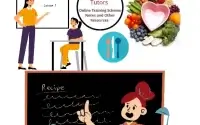Christian Religious CRS First Term Examination JSS 1
CHRISTIAN RELIGIOUS STUDIES EXAMINATION
CLASS: J.S.S ONE
DURATION: 2 HOURS
SECTION A: OBJECTIVE QUESTIONS
Answer all the questions in this section.
- The attribute of God that makes Him knowledgeable of all things is His ____________.
(a) omnipresence (b) omniscience (c) omnipotence (d) omnivorous - Man signifies ____________.
(a) Adam (b) God (c) the image of God (d) clay - The breath of God in man makes man ____________.
(a) a person (b) the friend of God (c) a living soul (d) great - Man’s destiny lies in his ____________ to God.
(a) disobedience (b) worship and service (c) obedience (d) desperation - One of the problems in marriage is ____________.
(a) unity (b) war (c) divorce (d) risk - To procreate means to ____________.
(a) reduce (b) establish (c) reproduce (d) duplicate - One of the purposes of marriage includes ____________.
(a) test (b) companionship (c) quarrel (d) separation - Marriage was instituted by ____________.
(a) man (b) pastors (c) God (d) angels - Man is to continue in the work of creation because ____________.
(a) God is tired (b) God made man in His image (c) God is weak (d) God is resting - Marriage is expected to last for ____________.
(a) a lifetime (b) some time (c) a while (d) some years - Man reproduces through ____________.
(a) prayer (b) fasting (c) marriage (d) traveling - ____________ was created last by God.
(a) Land (b) only man (c) sea creatures (d) man and land animals - ____________ is a function of man in God’s creation.
(a) reproduction (b) reduction (c) reconciliation (d) desperation - Man is a temporary being because ____________.
(a) he will die (b) he breathes (c) he eats (d) he prays - The coming together of a man and a woman is called ____________.
(a) togetherness (b) support (c) union (d) marriage - There are basically ____________ types of marriage.
(a) two (b) three (c) four (d) five - ____________ is one of the functions of man in God’s creation.
(a) reproduction (b) reduction (c) reconciliation (d) restoration - Jacob repented of the act of ____________.
(a) killing (b) fighting (c) lying (d) deceit - To turn from one’s wrongdoing is ____________.
(a) forgiveness (b) change (c) repentance (d) reconciliation - One of the consequences of disobedience is ____________.
(a) death (b) flogging (c) stoning (d) warning - ____________ entails going against a stipulated rule or instruction.
(a) obedience (b) compliance (c) stubbornness (d) disobedience - One of the remedies for unstable marriage is ____________.
(a) faithfulness (b) fighting (c) double dating (d) infidelity - One of the reasons for unstable marriage is ____________.
(a) hunger (b) nakedness (c) mother-in-law (d) infidelity - The termination of a marriage union is known as ____________.
(a) separation (b) fighting (c) divorce (d) quarreling - All but one are attributes of God.
(a) omnipotent (b) holy (c) omnipresent (d) omnivorous - God’s children should be holy because ____________.
(a) it is by force (b) God is holy (c) God is handsome (d) man is God’s creature - The Ijaw people call God ____________.
(a) Egbesu (b) Egunu (c) Oghene (d) Eleda - Chineke means ____________.
(a) God the ruler (b) God the creator (c) God the Almighty (d) God is good - On the second day of creation, ____________ was created.
(a) light and darkness (b) the sun and the moon (c) the firmament (d) man - Man was put in the garden to ____________ the garden.
(a) love (b) wash (c) protect (d) take care of - One of God’s attributes that shows His supreme power is ____________.
(a) omniscience (b) omnipotence (c) omnipresence (d) holiness - God made man different from other creatures because ____________.
(a) He gave man authority (b) He made man tall (c) He made man eat (d) He created man first - The first marriage was between ____________.
(a) Adam and Eve (b) Cain and Abel (c) God and man (d) Isaac and Rebekah - Disobedience leads to ____________.
(a) punishment (b) blessings (c) promotion (d) success - One of the benefits of marriage is ____________.
(a) separation (b) companionship (c) fighting (d) loneliness - God rested on the ____________ day of creation.
(a) fifth (b) sixth (c) seventh (d) eighth - The ability of God to be everywhere at the same time is called ____________.
(a) omnipotence (b) omniscience (c) omnipresence (d) holiness - ____________ is one of God’s names in the Yoruba language.
(a) Chineke (b) Olodumare (c) Egbesu (d) Yahweh - The union of a man and a woman is referred to as ____________.
(a) friendship (b) marriage (c) dating (d) courtship - The fall of man occurred because of ____________.
(a) sin (b) obedience (c) faithfulness (d) loyalty
SECTION B: EVALUATION QUESTIONS
Answer any 5 questions.
- Define disobedience and list three consequences of disobedience.
- Mention three names of God in Nigerian languages and their meanings.
- Narrate how God created man in a unique way.
- List and explain the types of marriage we have.
- In what two ways is man involved in God’s creative activity?
- Define marriage and list three reasons for unstable marriage.
- Explain the sovereignty of God.
- Narrate the reconciliation between Jacob and Esau.
- Write a brief account of God’s creation from day one to day six.
- Mention and explain two attributes of God.
Related Posts


Healthy Ears and Nose: Structure, Functions, and Care Home Economics JSS 1 First Term Lesson Notes Week 4


Understanding Speech and the Organs of Speech English Grammar JSS 1 First Term Lesson Notes Week 1


Les fêtes et activités hebdomadaires en français | JSS 1 Lesson
About The Author
Edu Delight Tutors
Am a dedicated educator with a passion for learning and a keen interest in technology. I believe that technology can revolutionize education and am committed to creating an online hub of knowledge, inspiration, and growth for both educators and students. Welcome to Edu Delight Tutors, where learning knows no boundaries.